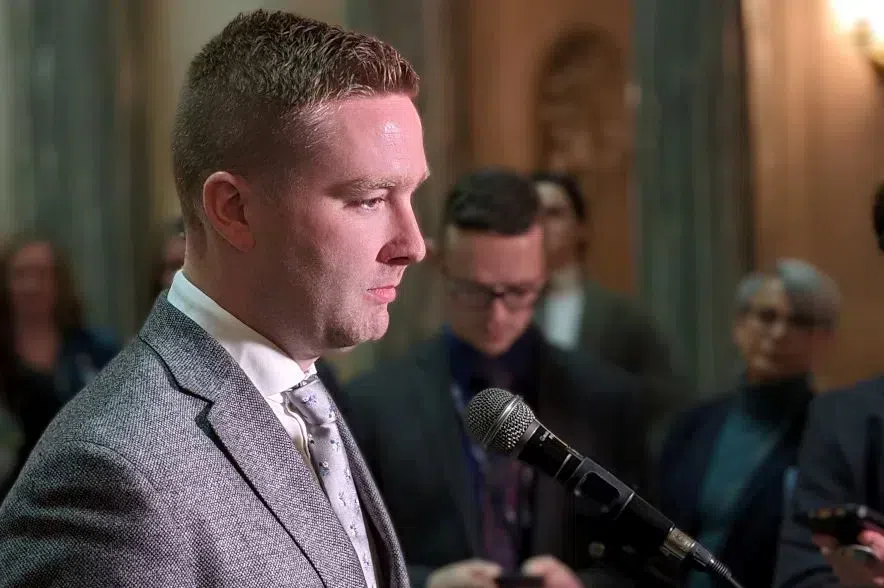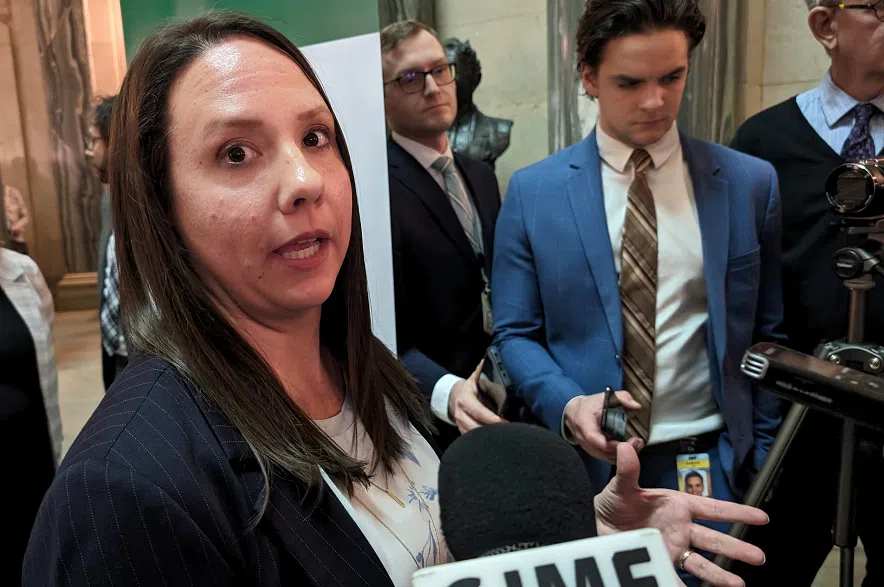Saskatchewan teachers have voted to renew their union’s sanctions mandate “until there is an agreement in place.”
The vote comes as the Saskatchewan Teachers’ Federation and provincial government return to the table in an effort to come up with a new collective agreement for the federation’s 13,500 members.
Both sides came back to the bargaining table this week after teachers overwhelmingly rejected an offer from the province including an eight per cent pay increase over three years.
Talks have broken down several times during the dispute, leading the federation to implement sanctions including work-to-rule action, withdrawal of support for extracurriculars, and rotating strikes.
Teachers gave the federation’s leaders a mandate to impose sanctions in a vote last October. That mandate would have expired on June 30, but according to a statement from the federation, the results of the vote held on Wednesday and Thursday mean that mandate is extended until a new deal is reached.
Of the 83 per cent of teachers who voted, 95 per cent were in favour of extending the mandate.
“Teachers have once again shown their resolve for implementing job sanctions, should the Government of Saskatchewan and Government-Trustee Bargaining Committee once again refuse to bargain in good faith on a provincial collective agreement,” the federation said in a statement.
Meanwhile, Education Minister Jeremy Cockrill has warned that the school year could be extended, depending on how much class time is lost due to the federation’s sanctions.
Along with salary, the primary sticking point in the negotiations has been the issue of class size and classroom complexity – the number of students in each class who require additional help. Teachers have pushed for specific measures to address the issues in the contract, but the provincial government has argued that elected school boards must be able to decide how to allocate resources.
“I believe that local school divisions have to maintain some decision-making power in terms of how their school communities look and are structured and are staffed,” Cockrill told reporters earlier this week, adding that he hopes a deal can be reached sooner rather than later.
Education Minister Jeremy Cockrill says he hopes a deal will be reached at the bargaining table sooner rather than later. (Lisa Schick/980 CJME)
The government increased funding for classroom support in its recent budget, but Samantha Becotte, the federation’s president, has said that money could be clawed back later unless it’s enshrined in a contract with teachers.
On Thursday, Becotte said she’s hoping the government will change its stance as the two parties get back to the table.
“We welcome the resumption of negotiations this week, and we are optimistic that teachers’ decisive rejection of the government’s contract offer, and this renewed sanctions mandate, will serve as a wake-up call,” Becotte said in a statement.
Samantha Becotte, president of the Saskatchewan Teachers’ Federation, speaks to 980 CJME in Regina. (Lisa Schick/980 CJME)
“The results of these votes demonstrate teachers’ resolve to secure a new agreement that addresses the problems students and colleagues are facing in schools.”
The federation said it would have no comment on the negotiations themselves while they are underway.













